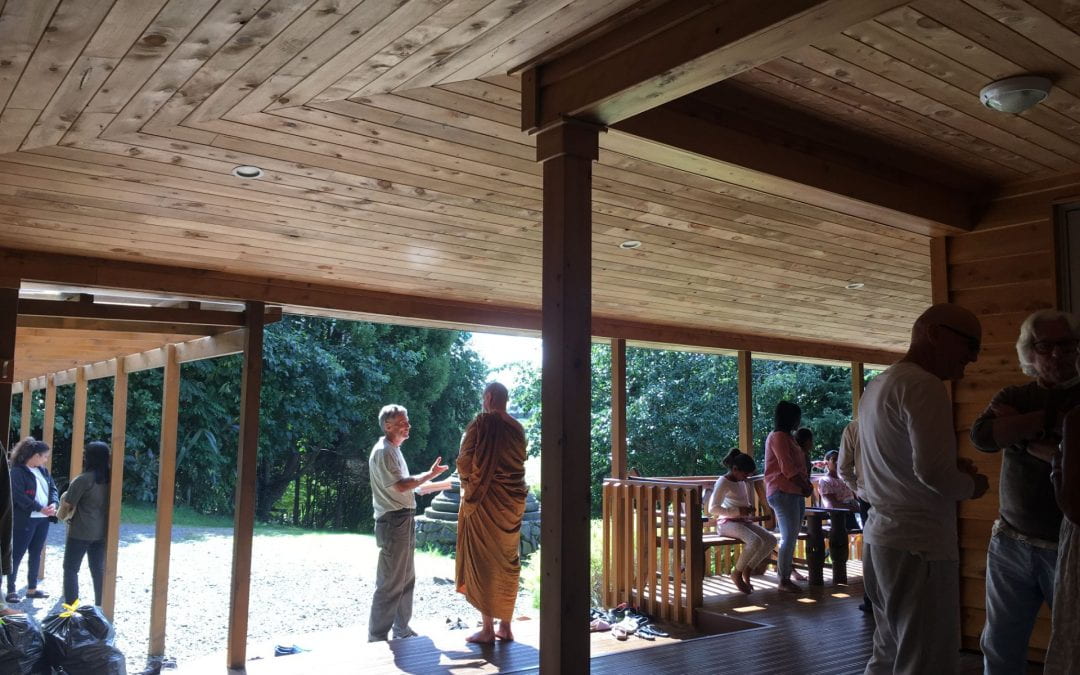I read a book once that talked about “the furniture of the mind” (the Penguin Classics edition of George Orwell’s ‘Books v Cigarettes’). It was a concept that stuck around in my mind, and I guess you could say it became part of the furniture of my own mind.
What I couldn’t shake is the idea that certain parts of our lives become fixed in our minds. We treat them like desks or beds we are used to seeing, moving around them, rarely noticing them, let alone stopping to question why they’re there, or if they’re in the best place.
Just after the mid-semester break started, I ended up at a Buddhist monastery outside Auckland by chance. Vimutti Monastery houses monks, holds silent retreats, and offers a glimpse into a lifestyle I can assure you is very different to that of a second-year law and arts student.
I’m no expert, but from what I garnered (conversation was sparse, as you can imagine), visitors can take part in a three-day silent retreat. The lifestyle of visitors and monks is one of fine-tuning themselves to the soul, rather than the body. Instead of listening to their whims or desires, they let the soul and mind speak. They meditate. They take long walks and pay attention to their surroundings. They don’t eat after noon, wear perfume, or listen to music. It’s about uncluttering their thoughts, letting the important ones rise above. Life is about finding the simple pleasures and going deep, rather than across (if that makes sense). The life of a Buddhist monk is one of listening, both to nature around them, and to their soul.
It’s all very hard to pinpoint, isn’t it?
But coming from a lifestyle of sitting in an underground lecture theater from 7:45 am and attending extracurricular activities until 8 pm some days – listening to cases that are essentially complaints made around the world, up to 150 years ago, rushing to do assignments, completing readings, and still finding time for friends and family – I realised how rarely I consider that I’m separate to the circumstances in my life.
It’s very easy to move along the channels of life without stopping to think that you’re not bound to them. Or maybe that’s just me. But throughout high school, I saw myself as a highschool student. When I started university, my time was dictated by what I thought was expected of me. Through every moment, I have the knowledge in the back of my mind that work, family commitments, and uni demand productivity, if I want to achieve my goals.
It was only after visiting the silent retreat that I realised that the choices you make about your career or how you spend your time don’t define who you are. Instead of thinking across, think deep (this took a lot of heavy lifting for the furniture of my mind). Sometimes it’s just about spending time alone. I cut back on my phone time and stopped looking at it whenever I was bored. I tried to tune into what I really wanted to do, doing things that sound pointless from a CV perspective or a Student Services timetable perspective. But walking around Albert Park between a class or getting up early just to think and watch the sun rise makes me feel like I have a better grip on myself. And that’s pretty important when you think about all the steering and propelling you have to do.
This is a very rambling blog post, considering it started out as a reflection on what a silent retreat means. I guess my takeaway message is to remember that your degree or your job shouldn’t have such a tight grip on your thoughts or your time or even who you think you are – there is so much more to think about. Take some time to do nothing, meaningfully and intentionally. We have all our lives to follow the clocks.
